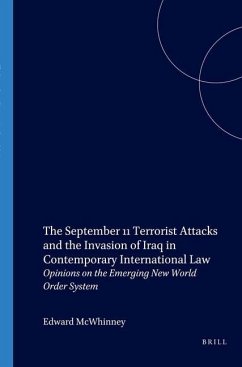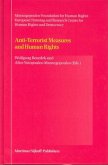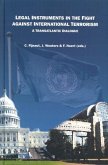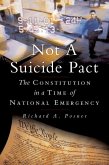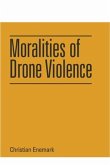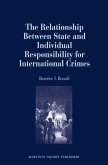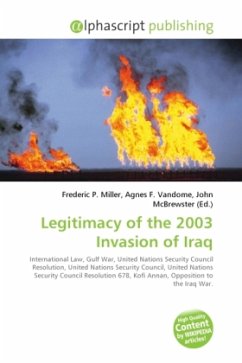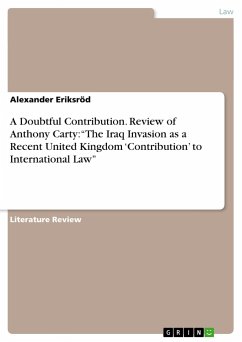The US administration's pursuit of the Al-Qaeda organisation and Taliban régime in Afghanistan, responsible for the September 11, 2001 international terrorist attacks, was supported by an international "coalition of the willing" and backed by the full legal authority of UN Security Council Resolutions. The US bid to follow this successful multilateral initiative with similar armed intervention against Saddam Hussein's government failed to rally support in the Security Council. The US then proceeded to act unilaterally, and with British military support, to invade Iraq.
The problems for contemporary international law and the UN Charter based World Order system posed by the conflicts within the Security Council and the assorted legal claims advanced, such as a revived doctrine of Humanitarian Intervention; régime change as a justification for intervention; Preemptive military strikes as an exercise in Self-defence; and Multilateralism versus Unilateralism in the exercise of the Peace and Security powers under the UN Charter, are canvassed in the present collection of legal opinions.
Hinweis: Dieser Artikel kann nur an eine deutsche Lieferadresse ausgeliefert werden.
The problems for contemporary international law and the UN Charter based World Order system posed by the conflicts within the Security Council and the assorted legal claims advanced, such as a revived doctrine of Humanitarian Intervention; régime change as a justification for intervention; Preemptive military strikes as an exercise in Self-defence; and Multilateralism versus Unilateralism in the exercise of the Peace and Security powers under the UN Charter, are canvassed in the present collection of legal opinions.
Hinweis: Dieser Artikel kann nur an eine deutsche Lieferadresse ausgeliefert werden.
' This hard-hitting analysis of the US-driven pre-emptive presents daunting questions arising under contemporary International Law, spawned by conflicts including the lack of an authorizing Security Council resolution, and the proffered US/British claim of legality. [...] The author presents his forceful critique of lessons learned and future directions in three phases, marked by successive time periods. '
ASIL Newsletter UN21 Interest Group , June 2005.
ASIL Newsletter UN21 Interest Group , June 2005.

